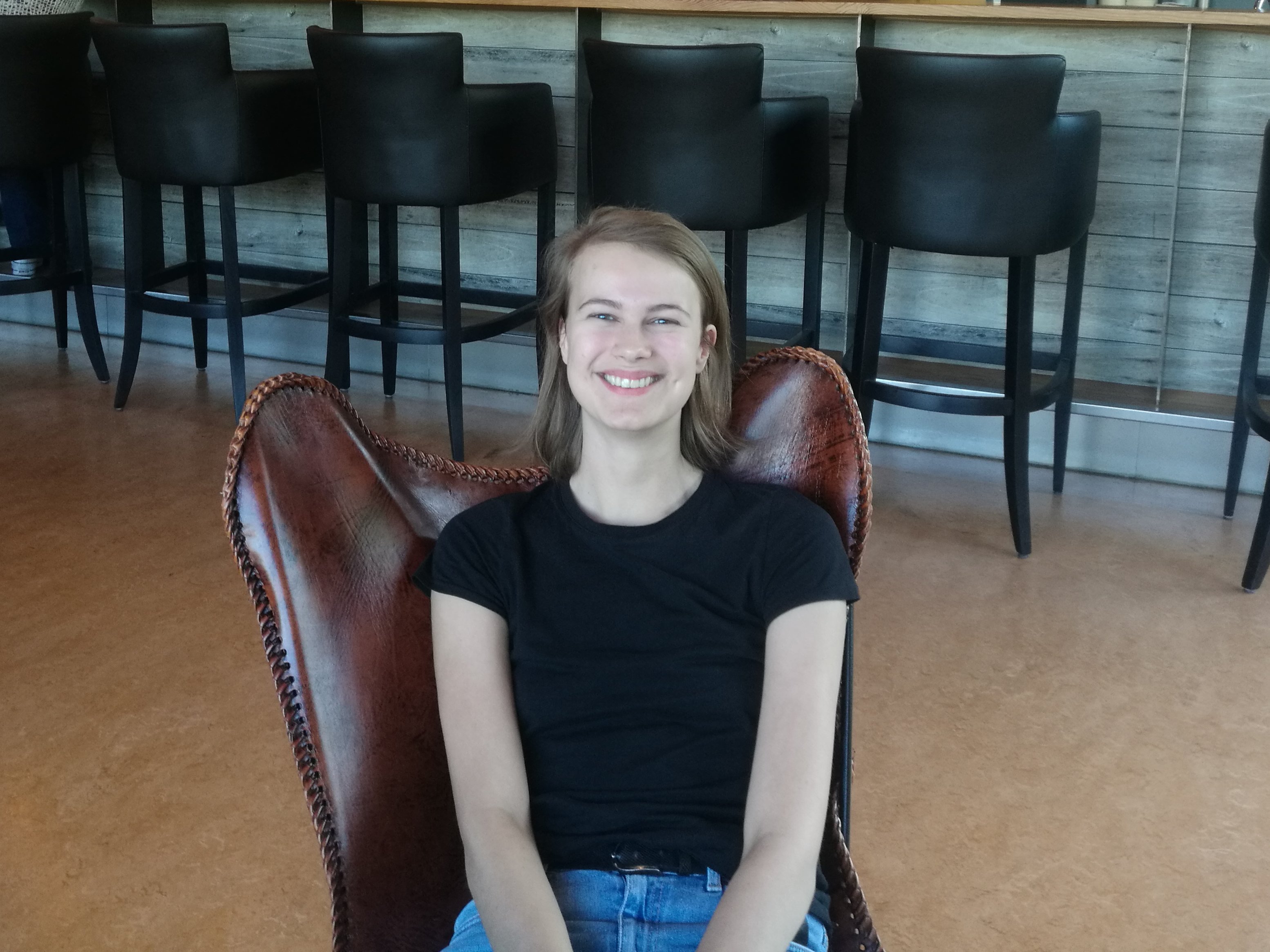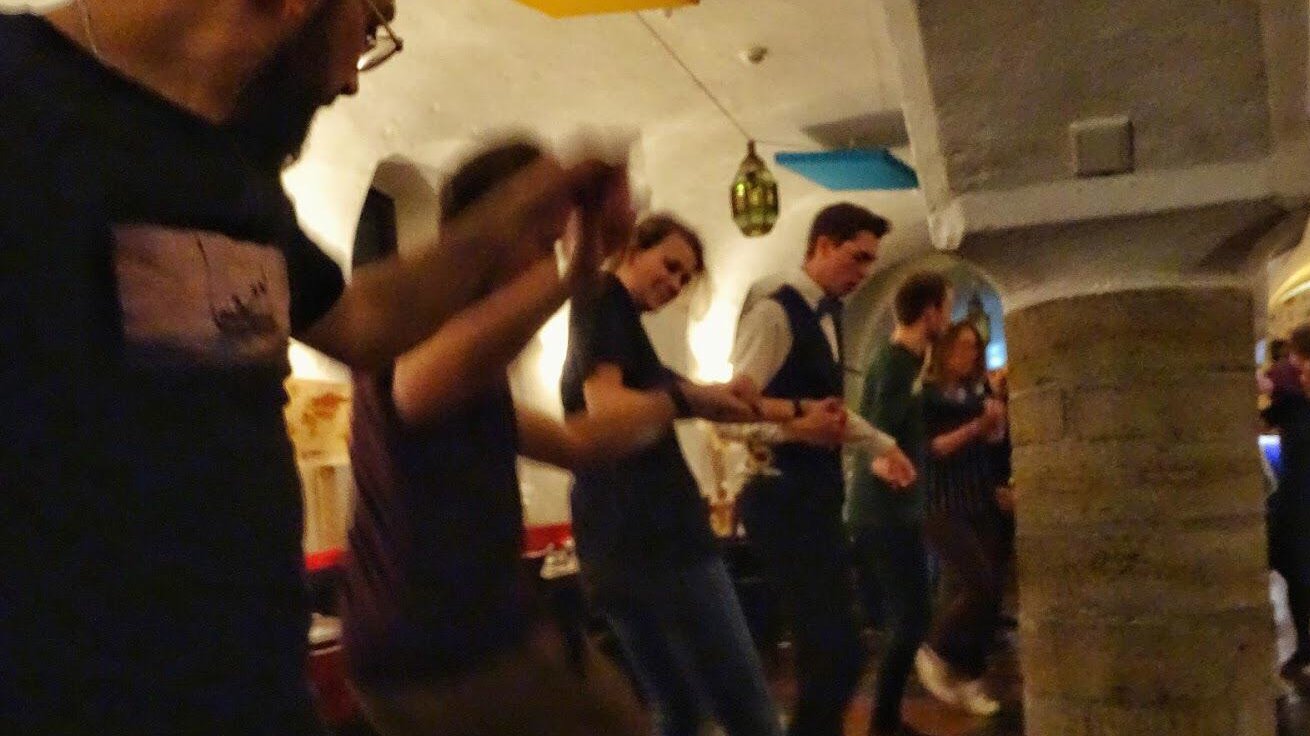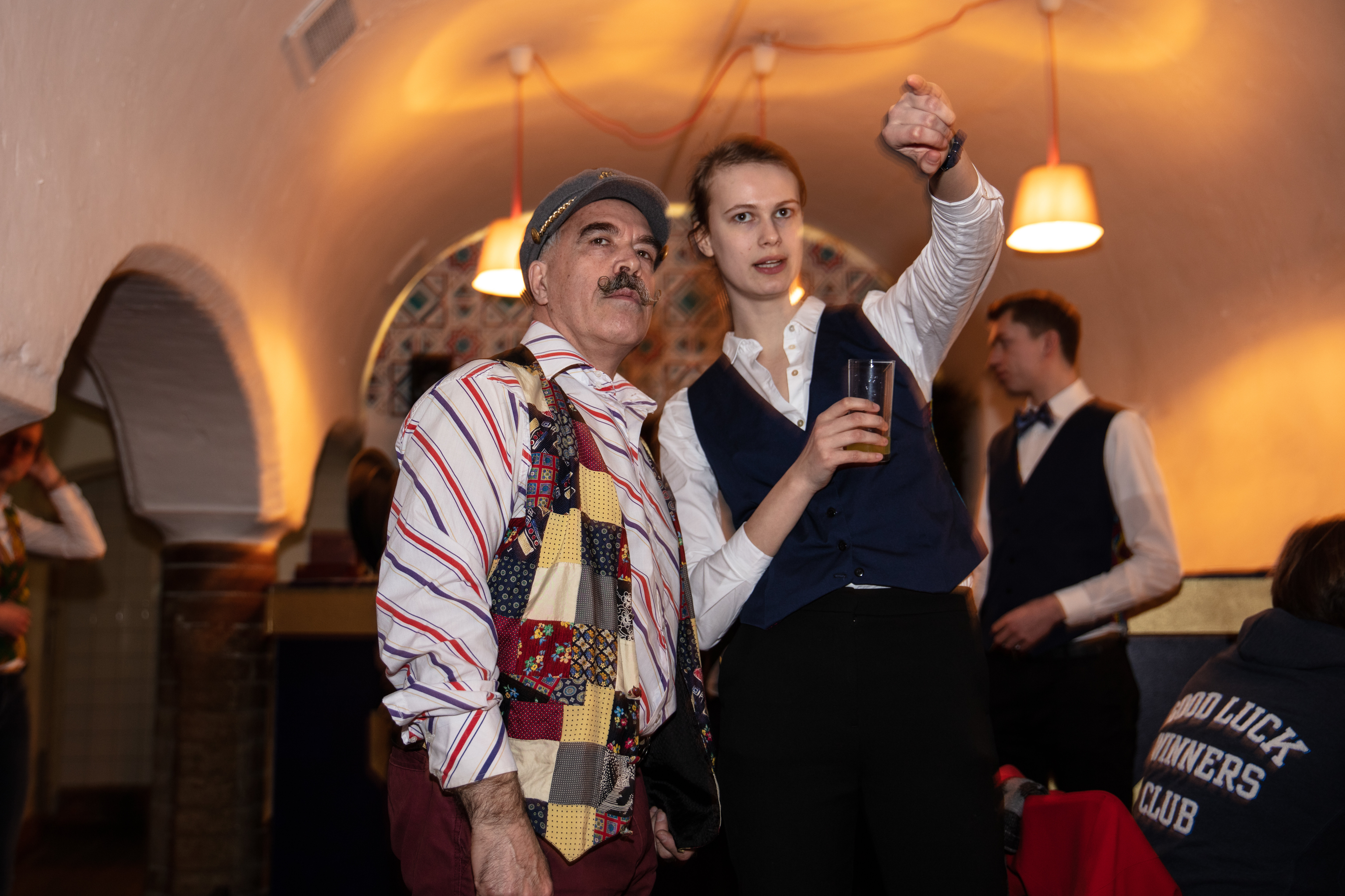'Hartige Samaritaan' - helping with refugee integration
Eva van der Kooij
Two years ago, when Eva van der Kooij heard about a pop-up restaurant being organised by Hartige Samaritaan, a foundation that helps refugees integrate into Dutch society, she decided to volunteer. “I really like cooking, I’m passionate about the refugee integration and also wanted to improve my soft skills and this seemed like the perfect place to begin.” This year Hartige Samaritaan organised another pop-up restaurant for one month and Eva became the chairwoman of the management team for the project. The restaurant raised over 30000 euros for the Dutch Council for Refugees. Here, the Environmental Engineering master's student shares her experiences.
By Padmini Manivannan, MSc Electrical Engineering
One of the first things you notice about Eva is how tall she is, “Yeah, I’m a tall girl, even among the Dutch.” Dressed simply in a black tee and blue jeans, she sits down to have a chat.
At Hartige Samaritaan, cultures come together and refugees and Dutch people meet to stimulate acceptance and integration between the two. They organise multiple projects like the pop-up restaurant and the Eating exchange. These projects help refugees interact with the Dutch in a fun and informal setting and help improve the Dutch experience and make it more accessible. “I came to know about Hartige Samaritaan through my mom, actually. Her friend’s son was volunteering there and I thought it was a good idea to join. I helped out with the restaurant two years ago just as a volunteer. When I heard they were looking to organise another restaurant this year, I wanted to be more involved.” As the chairwoman, she organised minute details of the restaurant - from publicity, recruiting volunteers and reaching out to the refugees to deciding the menu, assigning duties and volunteer shifts, managing finances and running the pass in the kitchen. “It’s such an adrenaline rush, everything is so chaotic and you’re sweating and screaming `Two more fish!’” But it was all worth it in the end, she says proudly.
When asked about how she became interested in the refugee situation, she reveals that she finds it hard to be selfish. “I know for a fact that I can own and buy stuff and lead this lifestyle only because I was born here in the Netherlands. I would not have had these opportunities had I been born in these war-torn countries. My parents are also similar in that way. They don’t go out too much. They mostly lead a sombre life.“
We move to a sofa where it’s less noisy and talk about the process of reaching out to the refugees. A majority of them is from Syria right now. She made it a point to go to KoffieNL, a language café where refugees can get to know the Dutch people and language better, and can practise their language skills in the form of casual conversations. “I wanted to get to know these people and hear from them what they think would help them integrate better.” It was also a way to spread the word about the restaurant. Mohamad, a Syrian refugee who came to the Netherlands two years ago, always helped with the restaurant and the language café as part of the PR & Communications department and helped bring in more people. He intends to pursue a master’s in Electrical Engineering at TU Delft next year.
I ask what the most challenging parts were and where she struggled the most. As gratifying as it is working for the refugees and the organisation, it is a hard task. “There are just days when things go wrong. At a restaurant, you have to stand the whole day and your feet are aching and it can be really tiring. Sometimes there are no refugees at the restaurant but you have to remember you’re still doing a good thing, still raising money for a good cause.” It was also hard to reach out to the refugees to begin with, “It is hard to ask the refugees in September if they wanted to help out with a restaurant next year in March because their future is so uncertain.” But over-working was also a problem. “Because I felt so invested in it, I went every day, working 12 hour shifts. There were times I had to remind myself to take a step back, to relax one day of the week and trust that things will be taken care of even when I’m not there.”
But there were plenty of happy moments that she cherishes: A refugee she knew from the language café offered to play traditional Syrian music along with his friend at the restaurant. They also organised a Dabka night, a traditional Syrian folk dance. “I think you have to put your hand like this and count five steps”, she shows me, imitating what she learnt. “That day everyone showed up! Everyone at the restaurant and all the refugees from the language café, there were at least twenty refugees and everyone had gathered outside the restaurant and they were all dancing.” Eva was supposed to leave to play soccer at that time, but she saw all those people gathered around and decided to go back.
“I think I learnt a lot from all this”, she says thoughtfully. She admits that the situation is very complex and confessed she had simplified it in her head. “I thought, of course, they are welcome here.” But the problem doesn’t end the moment they reach here. There is a lot more work to do to make them feel at home. Events like the Dabka night help the refugees experience their culture in a place far away from their home. “I’m proud that I never quit. I worked really hard and it became really tiring at times. But I kept pushing and I enjoyed it all the time. I’m glad that I did not let it get to me. I got it.”
Now with the restaurant activities done, Eva plans to focus on her studies, which she had briefly put on hold. She still goes to the language classes whenever she has time and continues to help with activities at the Hartige Samaritaan. I ask if it has lived up to all that she expected? “I did not know what to expect when I began. But, ” she tells happily, “I’m really content with everything I’ve experienced.”





